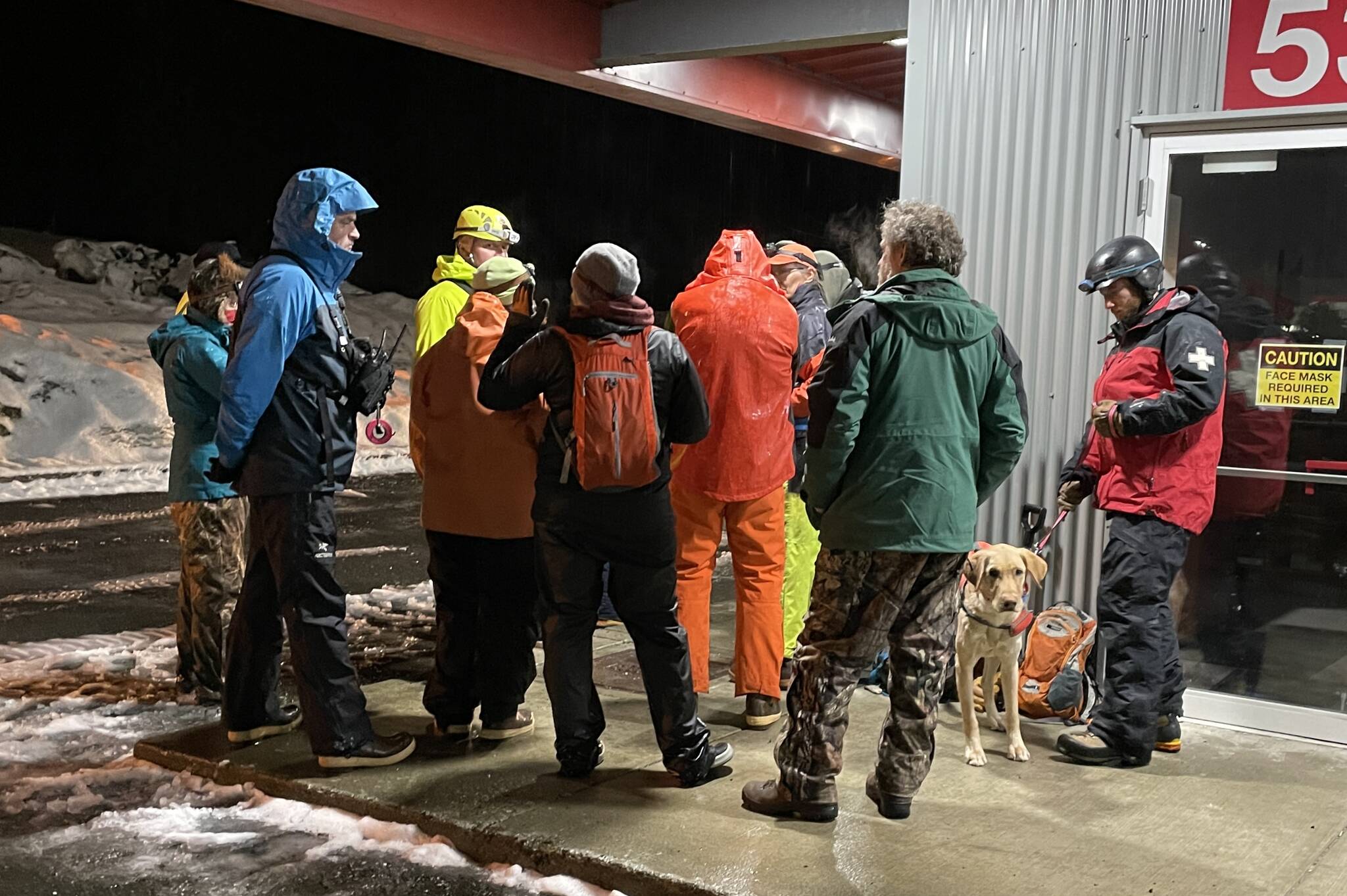On a drizzly Friday evening in a nondescript parking lot, some of the region’s most experienced emergency and search and rescue organizations gathered to do something that hadn’t been done here in more than a decade.
Personnel from Capital City Fire/Rescue, City and Borough of Juneau, Juneau Mountain Rescue, Juneau Police Department and Southeast Alaska Dogs Organized for Ground Search and others met for a large-scale urban avalanche rescue exercise.
“This is the first time we’ve had an exercise in recent history like this. The last one was 15 years ago or something,” said Peter Flynn, a CCFR engineer who helped to organize the exercise. “There’s a renewed effort to improve the baseline of where we’re at right now.”
[Sunflowers under a rainy sky: Juneau rallies for Ukraine]
Last year’s high avalanche risk, alongside climate change increasing the risk of landslides in the area, were some of the reasons the organizations are increasing their operational tempo.
“The climate’s changing. As we’ve seen with our rainfall, landslides are becoming more of a thing in the region. Some of us went up to the Haines landslide year,” Flynn said. “It’s at the forefront of people’s minds right now.”
The exercise, which simulated an urban avalanche, complete with buried volunteers for dogs to find in a pile of plowed snow, was also meant to see how the organizations worked when thrown together with little warning or planning, said Flynn.
“It went great,” said Jackie Ebert, president of JMR. “We had a lot of positive feedback from folks giving us some real world experience about what it’d be to work with all these organizations in the scenario.”
Other goals were to integrate the city’s mobile command center into the response, Flynn said, as well as to give SEADOGS a chance to run out their dogs in what was already a busy exercise site, with more than 50 people taking part.
“There was Pinesol and chicken wrappers and all sorts of distracting things,” Flynn said.
Volunteers would take turns hiding in small hollows of snow so the dogs could track and locate their scents as part of the exercise, Flynn said. Participants also worked on how they would integrate volunteers to an urban exercise into useful groups in the event of an urban avalanche, Ebert said.
“The big thing we had for the initial response is working on the probe lines,” Ebert said. “Once you might have a strike, you have another team of shovelers — that’s an especially strenuous job.”
While JMR trains every year for backcountry avalanche SAR work, Ebert said, urban avalanches have a number of substantial differences, especially if a large avalanche rolling down the Behrends Avenue chute renders Egan Drive impassable, isolating downtown and Douglas from the airport and hospital.
“The difference is you’re going to have a lot of spontaneous volunteers show up. It could be just as logistically difficult to get there if it cuts off major roadways,” Ebert said. “There’s a lot more agencies and companies involved. Are the power lines on? Who has information about the houses?”
There’s a great deal of experience and involvement in avalanche response here in town, Flynn said, with organizations like the Coastal Alaska Avalanche Center anchored in Juneau.
“We have some really good people who have come into positions- we’ve all been working together a lot,” Flynn said. “We’ve got a really strong depth of knowledge and experience in this town.”
The organizations and city will continue planning as they expand their knowledge base by talking to organizations that do similar work, such as responding to landslides. Organizations are also working to plan ahead for an avalanche so they won’t be caught flat-footed if an avalanche does go tearing through an urban area, Flynn said.
“The fire department has requested things that are running low, like really sturdy snow shovels that can dig in avalanche debris,” Flynn said. “We’re also trying to strengthen our relationship with agencies, like the landslide hazard office for the (U.S. Geological Survey.)”
• Contact reporter Michael S. Lockett at 757-621-1197 or mlockett@juneauempire.com.

